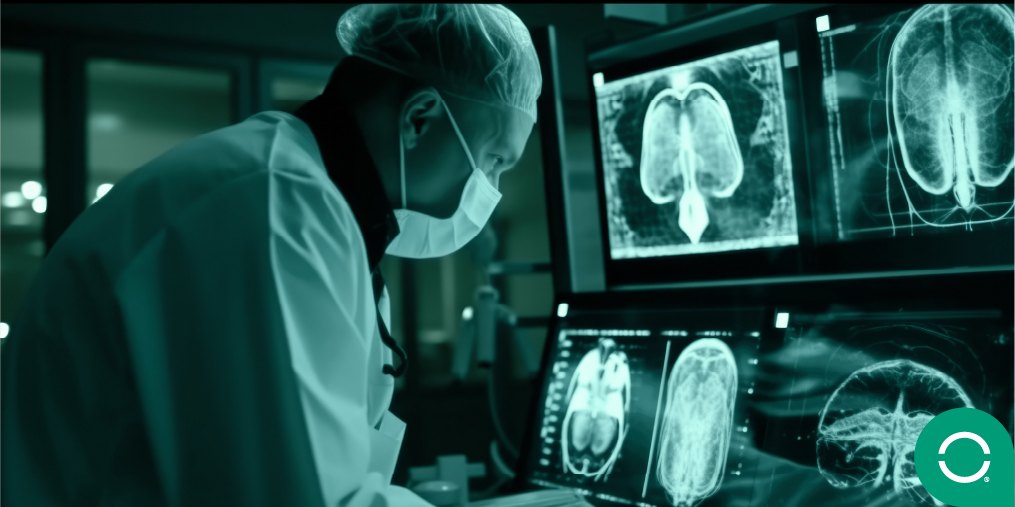 Add My Company
Add My Company
Harnessing the Potential of AI in Healthcare

Revolutionising Diagnosis and More
In the dynamic world of healthcare, artificial intelligence (AI) is emerging as a transformative force, reshaping how medical practitioners diagnose, treat, and manage diseases. This article explores the remarkable applications of AI in the healthcare industry, its potential to revolutionise future healthcare, and real-life instances of AI in action. Let’s delve into the realm of AI and its impact on healthcare, and answer several questions being asked online.
1. How AI is Utilised in Healthcare:
AI applications in healthcare encompass various areas, including medical imaging analysis, predictive analytics, virtual assistants, and robotic surgery. By harnessing advanced algorithms and machine learning techniques, AI systems can analyse vast amounts of data, identify patterns, and generate actionable insights to support decision-making by healthcare professionals.
2. An Illustration of AI in the NHS:
An excellent example of AI in the NHS involves the analysis of X-ray images, such as mammograms, aiding radiologists in their assessments. AI algorithms can detect potential abnormalities, assisting radiologists in making accurate diagnoses efficiently. This not only enhances diagnostic precision but also allows radiologists to allocate more time to patient care or screen a larger number of individuals promptly.
3. The Transformational Power of AI in Future Healthcare:
The potential of AI to transform healthcare is vast. From personalised medicine and drug discovery to remote patient monitoring and predictive analytics, AI has the power to revolutionise healthcare delivery. With its capacity to process extensive patient data, AI systems can provide precise diagnoses, tailor treatment plans, and improve patient outcomes.
4. AI’s Role in Disease Cure:
While AI holds significant promise, it is crucial to recognise that it is not a standalone cure for diseases. Instead, AI can complement the expertise of healthcare professionals by enhancing diagnostic accuracy, optimising treatment plans, and supporting disease management. It empowers healthcare providers to make more informed decisions, leading to improved patient care.
5. Real-World Instances of AI in Healthcare:
A notable real-world example of AI in healthcare is the collaboration between IBM Watson and the Memorial Sloan Kettering Cancer Centre. By analysing vast amounts of medical literature, patient records, and genomic data, Watson assists oncologists in generating treatment recommendations tailored to individual cancer patients. This demonstrates how AI can augment clinical decision-making and improve treatment outcomes.
6. AI’s Utilisation in the UK:
In the UK, AI is gaining traction across various healthcare domains. It is being employed in areas such as early disease detection, remote patient monitoring, intelligent triaging systems, and optimising hospital resource allocation. AI-driven technologies assist healthcare providers in delivering efficient, patient-cantered care and improving overall healthcare outcomes.
7. Advantages of AI in Healthcare:
AI offers several advantages in healthcare. It enables more accurate and faster diagnoses, enhances treatment planning and medication management, improves patient monitoring and personalised care, and optimises healthcare resource utilisation. Additionally, AI can uncover hidden insights from large datasets, leading to new discoveries and advancements in medical research.
8. AI’s Problem-Solving Potential in Healthcare:
AI addresses numerous challenges in healthcare, including diagnostic errors, resource constraints, and treatment variability. By analysing diverse patient data, AI algorithms can identify subtle patterns and provide diagnostic support, reducing errors. AI also streamlines administrative tasks, improves operational efficiency, and enables proactive healthcare interventions.
9. Examples of AI in Medical Diagnosis:
AI has shown significant potential in medical diagnosis. For instance, AI algorithms can analyse electrocardiogram (ECG) data to accurately detect cardiac abnormalities. Additionally, AI-powered systems can assess retinal images to diagnose conditions like diabetic retinopathy and age-related macular degeneration. These examples underscore how AI aids in accurate and timely medical diagnoses.
AI in Healthcare:
Artificial intelligence is revolutionising healthcare, empowering medical professionals and improving patient outcomes. From enhancing diagnostic accuracy to transforming treatment approaches, AI holds immense potential in shaping the future of healthcare. As AI continues to evolve, its impact will be far-reaching, enabling precision medicine, improved disease management, and ultimately, a healthier world.
For more information on Harnessing the Potential of AI in Healthcare talk to Timesco Healthcare Ltd
